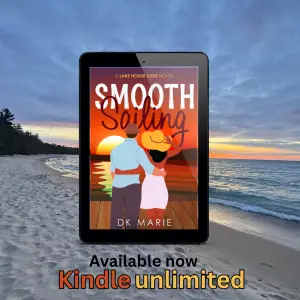I just finished reading It Ends with Us by Colleen Hoover, and let me tell you, this was a deeply emotional journey that left me both captivated and reflective. As a fan of romance and emotionally charged narratives, the synopsis drew me in immediately. The idea of a workaholic grappling with her past while navigating a complicated romance with a charming neurosurgeon felt like it could provide both heartwarming and heart-wrenching moments. And I could not have anticipated how true that would turn out to be.
Colleen Hoover’s narrative style kept me glued to the pages. The writing is exquisite, drawing the reader into the psyche of Lily, the protagonist. One standout element of It Ends with Us is its emotional depth. As in one reader’s review, "I didn’t cry while reading this book, but I did cry several days later when I was looking back on Lily’s story." That’s exactly how I felt; the emotional weight of Lily’s experiences lingered long after I turned the last page.
Lily’s journey to establishing a successful life in Boston, fueled by her hard work and ambition, resonated with me. Her relationship with Ryle Kincaid, while filled with romantic sparks, also reveals troubling dynamics. The portrayal of Ryle’s aversion to commitment and the nuanced layers of his character left me questioning the complexity of both love and relationships. This ambiguity is a recurring theme, allowing readers to fully engage in an upheaval of thoughts and feelings about love and choice.
However, the book is not without its drawbacks. While the emotional themes hit hard, some may feel the pacing in parts lags slightly when compared to the riveting climax. A few readers mentioned this as well, recognizing that not every moment is steeped in tension or urgency. Furthermore, the underlying message about relationships can be triggering, particularly for readers who have encountered similar experiences. It’s crucial for potential readers to approach with awareness, especially regarding the subject of domestic abuse woven throughout the narrative.
For me, one of the strongest aspects of the novel was Lily’s character development. The way she navigates her relationship with Atlas, her first love, adds another layer of complexity. As one review pointed out, "Just because someone hurts you doesn’t mean you can simply stop loving them." This sentiment captured an emotional truth that resonates throughout the story. By the end, Lily transitions from a character grappling with uncertainty to someone who takes charge of her life in a powerful way. I found myself rooting for her resilience and empowerment.
Another notable observation is the meaningful significance of the title, which resonates deeply within the narrative. When the title finally clicks into place, it leaves a lasting impact. It’s moments like these that remind us of the profound revelations that can come from literature, capturing the essence of the journey not just for the characters but also for the readers.
In conclusion, It Ends with Us offers an invaluable reading experience that beautifully intertwines themes of love, choice, and resilience. Colleen Hoover indeed crafted a tale that digs its claws in and doesn’t let go. Despite minor pacing issues and some potentially triggering content, the story is an evocative one that will encourage readers to reflect on the complexities of human relationships. I wholeheartedly recommend this book to anyone who is ready to delve into a romance that is not just about love but also about self-discovery and strength.
Overall, I’d rate this book a solid 4.5 stars out of 5. It’s a story that will stay with me for a long time, and I urge anyone considering it to dive in without reservations. After all, sometimes the most poignant stories are those that challenge our perceptions and encourage growth. Happy reading!
Discover the powerful journey of resilience and love in It Ends with Us. >>








